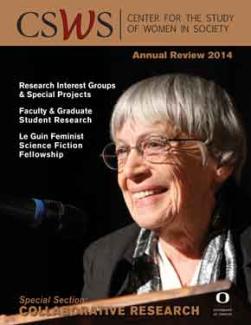Feature
Special Section: Collaborative Research
- “The Collaboration Continuum” by Michael Hames-García
- “Collaboration through Conversation” by Jenée Wilde, PhD candidate, Department of English (Folklore)
- “Plugging into the Recharge Station” by Mary E. Wood, Professor, Department of English
- “Creating Visibility for Feminist Philosophy” by Megan Burke, PhD candidate, Department of Philosophy
- “Harnessing Hearts and Minds: The Power of Activism in Academia” by Marina Rosenthal & Carly Smith, PhD candidates, Department of Psychology
- “A Documentary Experience” by Sonia De La Cruz, Adjunct Instructor, School of Journalism and Communication
Research and Interviews
- “Media, Democracy, and the Construction of Collective Memory: A Conversation with Gabriela Martínez” by Alice Evans
- “Women, Development, and Geographies of Insecurity in Post-Conflict Southeast Turkey” by Jessie Clark, Instructor, Department of Geography
- “BiSciFi Project: Researching Speculative Fictions and Bisexual Lives” by Jenée Wilde, PhD candidate, Department of English (Folklore)
- “Identity, Culture, and Communication: LGBTQ Youth and Digital Media” by Erica Ciszek, PhD candidate, School of Journalism and Communication
- “‘The Other Lives”—Locating Dis/Ability in Utopian Feminist Science Fiction: An Interview with Kathryn Allan” by Alice Evans
- “Discovering the Other Lives” by Kathryn Allan, 2013 Le Guin Feminist Science Fiction Fellow
Highlights from the Academic Year
Looking at Books
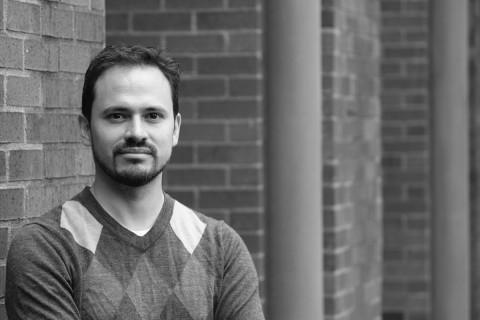
An Interview with Director Michael Hames-García
by Jenée Wilde, PhD candidate, UO Department of English (Folklore)
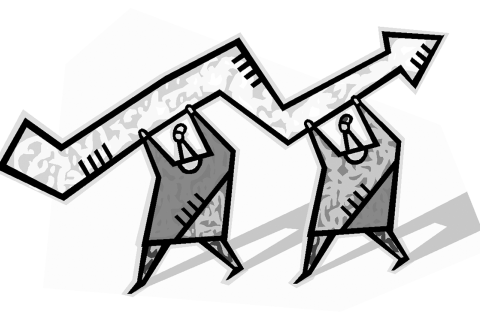
The Collaboration Continuum
by Michael Hames-García, Director, CSWS; Professor, UO Department of Ethnic Studies
I am aware of the irony of writing a column by myself on collaborative scholarship. Most likely, any insights contained here would have been strengthened by the participation of others in the writing process. And yet, part of what I would like to say is that in some sense all scholarship is collaborative...
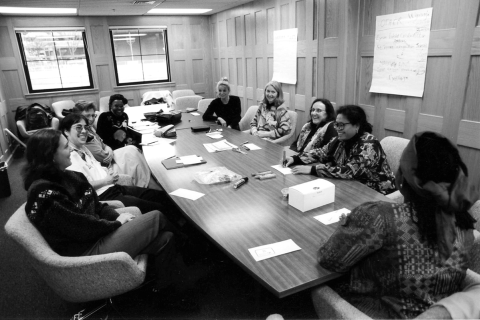
Collaboration Through Conversation: How CSWS Developed the Research Interest Group Model
by Jenée Wilde, PhD candidate, English
In 1994, the Center for the Study of Women in Society (CSWS) launched a bold new vision—to foster scholarly collaboration through research interest groups, or RIGs. While the center had primarily funded individual research in earlier decades, the RIG model was designed to support a variety of intellectual and social connections among scholars working on gender in broadly related fields.
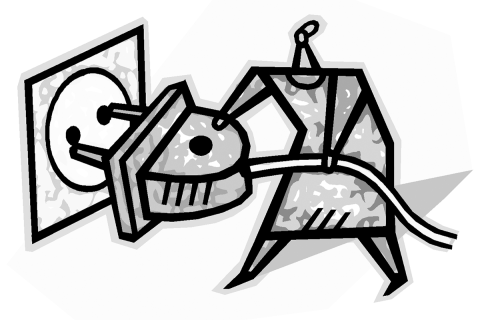
Plugging Into the Recharge Station: Today’s Research Interest Groups from a Faculty Perspective
by Mary E. Wood, Professor, UO Department of English
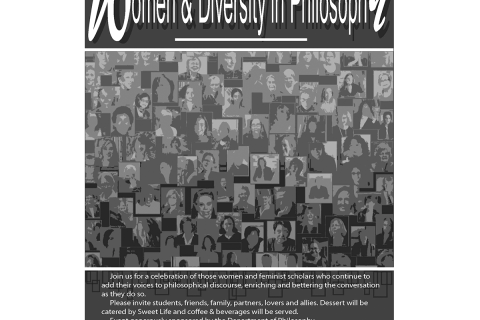
Creating Visibility for Feminist Philosophy
by Megan M. Burke, PhD candidate, UO Department of Philosophy
In the world of academic philosophy, feminist philosophers occupy a marginalized space. This, of course, is not unique to philosophy as most academic disciplines give marginal status to those working on issues of gender and its intersections with sexuality, class, and race.
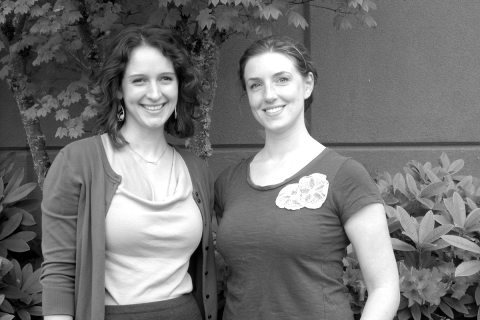
Harnessing Hearts and Minds: The Power of Activism in Academia
by Marina Rosenthal and Carly Smith, PhD candidates, UO Department of Psychology (Clinical Psychology)

A Documentary Experience: Reflections on Weaving 40 Years of Feminist History into a 52-minute Film

Media, Democracy, and the Construction of Collective Memory: A Conversation with Gabriela Martínez
by Alice Evans, CSWS Dissemination Specialist
CSWS last interviewed Gabriela Martínez for the Annual Review in summer 2012, when she was the incoming associate director of CSWS. Now entering her third and final year as associate director, Martínez talks about her research, documentary filmmaking, and teaching; her tenure at CSWS; and her upcoming year as a resident scholar at the Wayne Morse Center for Law and Politics.

Women, Development, and Geographies of Insecurity in Post-conflict Southeast Turkey
by Jessie Clark, Instructor, UO Department of Geography
The landscape of Southeast Turkey today looks starkly different than it did fifteen years ago. From 1984 to 1999, much of the Southeast region was caught up in a civil war between the Kurdish-separatist group the PKK and the Turkish military. Approximately 4,000 villages were burned, 40,000 people killed, and approximately 900,000–4 million individuals displaced (numbers vary depending on the source).

The BiSciFi Project: Researching Speculative Fictions and Bisexual Lives
by Jenée Wilde, PhD candidate, UO Department of English (Folklore)
As a PhD candidate, my research has resulted in part from frustrations I have felt with the lack of serious treatment given to bisexuality as a position from which to theorize sexual knowledge within humanistic scholarship. While studies of gay, lesbian, and transgender communities and cultural production have dramatically increased over the past two decades, research on bisexuality remains highly undervalued in much of the humanities and social sciences.
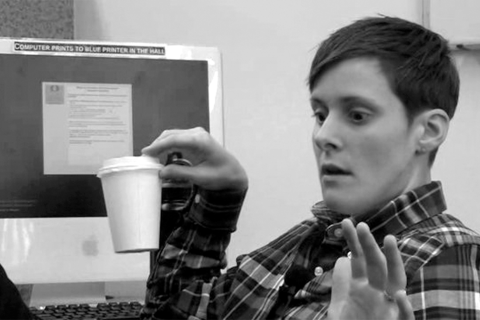
Identity, Culture, and Communication: LGBTQ Youth and Digital Media
by Erica Ciszek, PhD candidate , UO School of Journalism and Communication
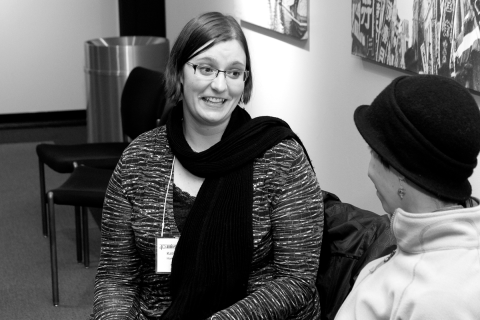
“The Other Lives”—Locating Dis/Ability in Utopian Feminist Science Fiction
by Alice Evans, CSWS Dissemination Specialist
CSWS interviewed Kathryn Allan, inaugural winner of the Le Guin Feminist Science Fiction Fellowship, during her CSWS-supported visit to do research at the UO Libraries Special Collections and University Archives. Allan immersed herself in the archives, reading the letters of Ursula K. Le Guin, Joanna Russ, and other feminist science fiction authors, seeking out conversations about disability and utopia, and delighting in her discoveries.
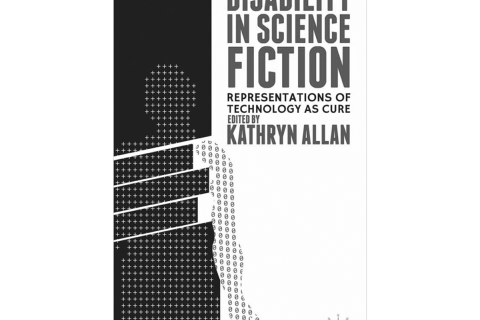
Discovering the Other Lives: Researching in the Feminist Science Fiction Archives
by Kathryn Allan, PhD, 2013 Le Guin Feminist Science Fiction Fellowship awardee


